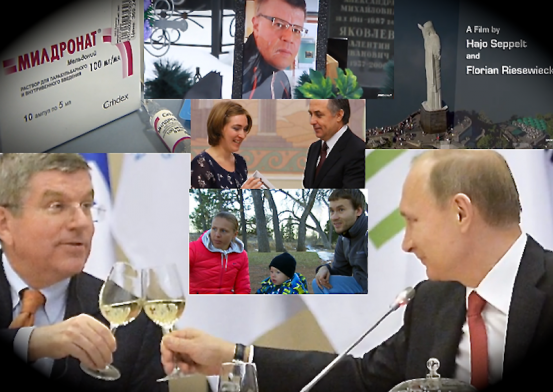- Commissioner’s statement on Ventura, Marte
- Ronnie O’Sullivan: Masters champion ‘felt so vulnerable’ in final
- Arron Fletcher Wins 2017 WSOP International Circuit Marrakech Main Event ($140,224)
- Smith challenges Warner to go big in India
- Moncada No. 1 on MLB Pipeline’s Top 10 2B Prospects list
- Braves land 2 on MLB Pipeline’s Top 10 2B Prospects list
- Kingery makes MLB Pipeline’s Top 10 2B Prospects list
- New Zealand wrap up 2-0 after Bangladesh implosion
- Mathews, Pradeep, Gunathilaka to return to Sri Lanka
- Elliott hopes for rain for Poli
Deep Into Russian Doping Crisis, IOC Launches Own Inquiries – ‘With McLaren’
- Updated: September 19, 2016

In the face of steep criticism from Prof. Richard McLaren after a weak response to a damning WADA-comissioned report that plunged swimming into eigtht days of unprecedenterd booing and jeering at the Rio 2016 Olympic Games, IOC president Thomas Bach has comissioned his own two reports into the Russian doping crisis.
Too little, too late, may well be the refrain Bach hears back, particularly at home in Germany, where he has been lambasted by coaches, athletes, politicians and others from many a sporting realm and beyond.
Bach’s latest tough talk comes with a warning no-one will heed until action is taken to deal with the findings of Prof. McLaren and team, let alone two internal IOC processes that seek to follow the same trail.
The IOC will take “all appropriate measures and sanctions” against Russia if what McLaren has told them turns out to be correct, Bach tells the 97 IOC members in a letter informing Olympic bosses that two of their number, Guy Canivet, a French judge and the IOC Ethics Commission vice-chairman, and Denis Oswald, the Swiss IOC member, are to retrace the WADA inquiry steps.
The move comes almost two years after German TV station ARD and its Sportschau investigations team blew the lid on the crisis with allegations of systematic doping in Russia. Critics will doubtless note the lapse of time and the fact that it has taken three WADA-led inquiries beyond the work carried out by various media before the IOC has decided to investigate itself.
Back’s letter outlines the roles of Canivet and Oswald, their work destined to overlap.
Canivet will focus on the allegations of Government involvement in Russian doping during the 2014 Winter Olympic Games in Sochi.
In his letter, Bach states that Canivet will work with McLaren and a Russian Commission set-up under the chairmanship of IOC honorary member Vitaly Smirnov, a former Sports Minister in the Soviet Union.
The 81 year-old Smirnov, IOC member from 1971-2015, is one of the architects of the Soviet sports system. He is now an honorary member of the IOC. He was First Vice-Minister of Sport of the USSR (1970-1975); Minister of Sport of the Russian Federation (1981-1990) among other senior positions, he served as Executive President of the Organising Committee of the Games of the XXII Olympiad Moscow 1980 (1975- 1981); was USSR National Olympic Committee President (1990-1992); President (1992-2001) then Honorary President (2001-) of the Russian Olympic Committee.
Critics argue that Smirnov may have inside knowledge about both the Soviet state doping system and Russia’s doping system. Some have also noted that was involved in Olympic bids in the 1990s that were connected to allegations of money laundering. Smirnov is also alleged to have been involved in a costly and dubious failed Olympic Lottery scheme that was the subject of litigation in Russia and Switzerland. You can read more on the topic at the website of investigative journalist Jens Weinreich.
Bach claimed in his letter that they must “work together as a unified team” to resolve allegations which mark an “attack on their integrity”.
That language is a part of the problem, say those who ask why Bach does not emphasise that doping and cheating and cover-up and corruption of the kind proven and alleged – but not enough to persuade the IOC to live up to its promise of ‘zero-tolerance’ – mark an attack on clean athletes, clean sport, intergrity and the Olympic movement …
